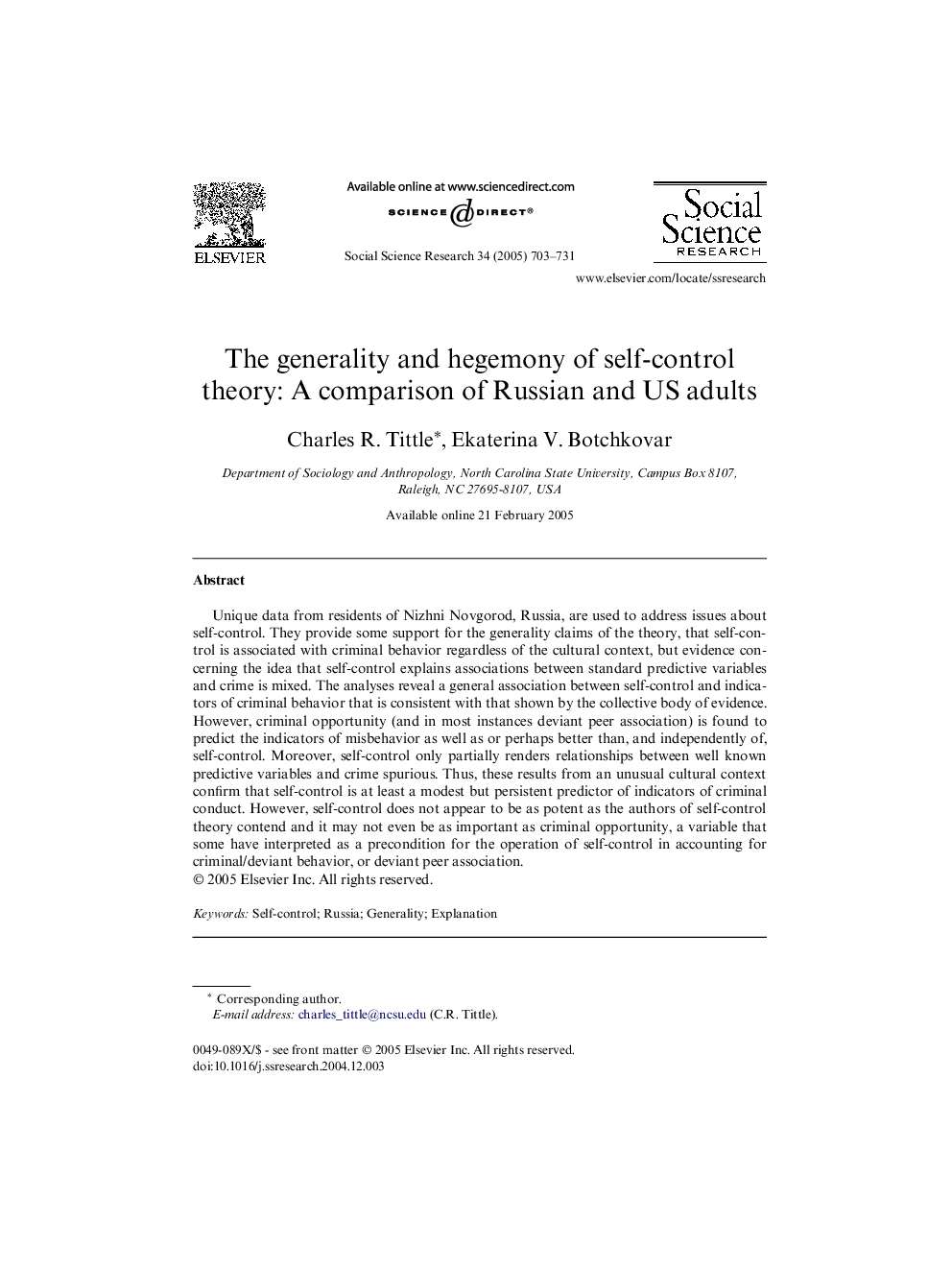| Article ID | Journal | Published Year | Pages | File Type |
|---|---|---|---|---|
| 10474172 | Social Science Research | 2005 | 29 Pages |
Abstract
Unique data from residents of Nizhni Novgorod, Russia, are used to address issues about self-control. They provide some support for the generality claims of the theory, that self-control is associated with criminal behavior regardless of the cultural context, but evidence concerning the idea that self-control explains associations between standard predictive variables and crime is mixed. The analyses reveal a general association between self-control and indicators of criminal behavior that is consistent with that shown by the collective body of evidence. However, criminal opportunity (and in most instances deviant peer association) is found to predict the indicators of misbehavior as well as or perhaps better than, and independently of, self-control. Moreover, self-control only partially renders relationships between well known predictive variables and crime spurious. Thus, these results from an unusual cultural context confirm that self-control is at least a modest but persistent predictor of indicators of criminal conduct. However, self-control does not appear to be as potent as the authors of self-control theory contend and it may not even be as important as criminal opportunity, a variable that some have interpreted as a precondition for the operation of self-control in accounting for criminal/deviant behavior, or deviant peer association.
Related Topics
Social Sciences and Humanities
Psychology
Social Psychology
Authors
Charles R. Tittle, Ekaterina V. Botchkovar,
